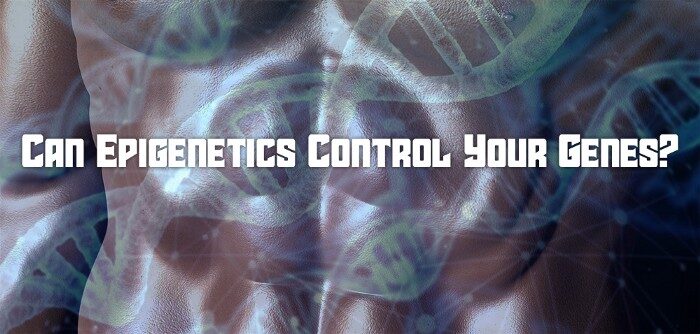Now it appears that our diets and lifestyles can change the expression of our genes. How? By influencing a network of chemical switches within our cells collectively known as the epigenome.
– NOVA’s Ghost in Your Genes, PBS
Did you know that genes control everything in our bodies, including our health?
Dr. Tracy Gapin explains that for decades the science and medical community assumed that genes predetermine our health, disease, aging, longevity, and even our natural lifespan. Although there are certain genes can put us at risk for serious diseases and illnesses, and other genes that can protect us against those diseases, that is far from the entire story.
In other words, your genes have not doomed you to a certain set of diseases or lifespan. “Research has proven, without a shadow of a doubt, that we can control the expression of our genes,” declares, Gapin. You have the power to influence how your genes express themselves!
That’s where the science of epigenetics can help. Epi means, outside or above the “gene” and it’s this outer environment that affects the way the gene behaves. Your genes are not set in stone but can change how they act based on our behaviors and environment. This includes the foods we eat, the quality of the air we breathe, and even when we go to sleep.
Epigenetic change is a natural occurrence but it can also be influenced by our environment, lifestyle, age, and, disease state.
Different lifestyle choices will deactivate or activate certain genes. “Your genetic expression impacts (positively or negatively) your testosterone levels, the likelihood of erectile dysfunction, and your risk for prostate cancer,” explains, Gapin. For example, exercising for just 20 minutes a day can positively impact the expression of over 7000 genes and lower your risk of developing cancer.
Epigenetics represents a change in phenotype[1] without a change in genotype. This, in turn, affects how cells read the genes and can improve or damage our health and many biological processes.
The science of epigenetics
The term “epigenetics” first surfaced in academic discussions around 50 years ago. At that time, researchers and physicians looked for signs that indicated that gene function could be altered by more than just changes in the sequence.
Today, a wide variety of ailments, behaviors, and other health indicators have shown some level of evidence linking them with epigenetic mechanisms. This includes cognitive dysfunction, reproductive, autoimmune, respiratory, cardiovascular, and neurobehavioral illnesses, as well as many cancers. Suspected or well-known drivers behind epigenetic processes include many agents like pesticides, diesel exhaust, hormones, radioactivity, viruses, bacteria, tobacco smoke, heavy metals, polycyclic aromatic hydrocarbons, and basic nutrients.
In the past two years, several groundbreaking studies have focused fresh attention on epigenetics. Interest has grown because it has become clear that understanding epigenetics and the global distribution of epigenetic changes will provide great insight in understanding all aspects of genetics, such as cloning, aging, synthetic biology, species conservation, stem cells, and even agriculture.
Multiple Mechanisms
The term “epigenetic” has evolved over time and is still up for debate, but essentially means “in addition to changes in genetic sequence.” It includes any process that alters gene activity without changing the DNA sequence. and leads to modifications that can be transmitted to daughter cells.
Epigenetic processes are natural and essential to many functions of organisms, however, if they happen incorrectly, there can be major degenerative effects on health and behavior.
The best-known epigenetic process is DNA methylation. You might be asking, “what the hell is methylation?” Methylation is a simple biochemical process — a transfer of four atoms — one carbon atom and three hydrogen atoms (CH3) — from one substance to another.
DNA methylation was first confirmed to occur in human cancer in 1983 and has since been observed in many other illnesses and health conditions.
Another significant epigenetic process is chromatin modification. Chromatin is a combination of proteins and DNA that is tightly bundled to fit into the cell nucleus. Their structures can be modified by substances such as acetyl groups, enzymes, microRNAs, and small interfering RNAs and thus influence gene expression. Expressivity may be influenced by the environment and by other genes, so people with the same gene may vary in phenotype. Expressivity can vary even among members of the same family.
Ok I hear you, “enough of the gobbledygook, what does this all mean to the average man?”
One effect of methylation and chromatin modification is imprinting. In genetics, imprinting describes the condition where one of the two variants of a typical gene pair is silenced, or not able to function as expected. This can then lead to a problem if the allele is damaged or contains a variant that increases the organism’s vulnerability to toxic agents, microbes, or other harmful substances.
Ok back up, what is an allele?
An Allele is the word used to describe alternative forms or versions of a gene. People inherit one allele for each non-sex chromosome from each parent.
Imprinting on genes is a known phenomenon and was first identified in 1910 in corn, and first confirmed in mammals in 1991.
Researchers have identified about 80 human genes that can be imprinted, although that number is subject to debate since the strength of the evidence varies. Randy Jirtle, a professor of radiation oncology at Duke University Medical Center, and his colleagues estimated in the June 2005 issue of Genome Research that there could be about 600 imprinted genes in mice; in an October 2005 interview Jirtle said he’s anticipating a similar tally for humans, even though the known imprintable genes of mice and people have an overlap of only about 35%.
What we need to be concerned about is that our genes can be modified by substances such as microRNAs and small interfering RNAs, which are a fundamental part of the new covid-19 “vaccines” being pushed on the public. I put the word vaccines in quotes simply because the Pfizer, Astra Zeneca and Johnson and Johnson jabs are technically not vaccines but are gene therapy. More importantly, as of this writing, they are still in the trial phase.
— — — — — — — — — — — — — — — — –
[1] Phenotype is the term used in genetics for the composite observable characteristics or traits of an organism. The term covers the organism’s physical form and structure, its developmental processes, its biochemical and physiological properties, its behavior, and the products of behavior.
footnotes:
This article is an excerpt from my forthcoming book: The Alpha Omega Male
Dr. Tracy Gapin is the founder of The Gapin Institute for Men’s Health, Dr. Tracy Gapin, shares the code to empowering men to radically transform their health.


Leave a Reply
You must be logged in to post a comment.